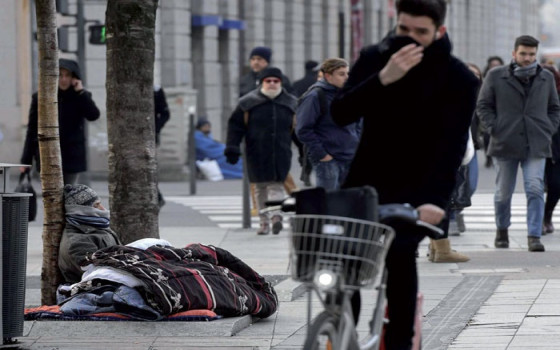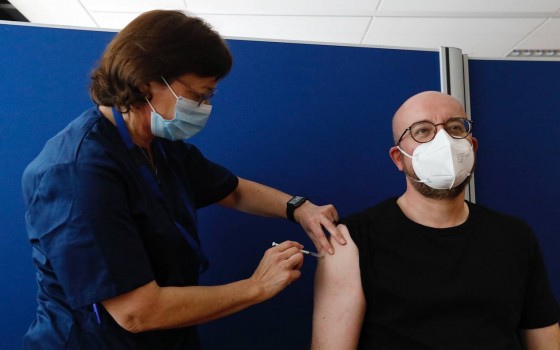
Belgium: Disturbing results that sound the alarm..because of the inequality..the residents of slums are more vulnerable to disease and death in the same year

- Europe and Arabs
- Wednesday , 18 January 2023 14:58 PM GMT
Brussels: Europe and the Arabs
People who live in poor neighborhoods are more likely to get sick or ill, and residents of lower-middle-income neighborhoods are 80 percent more likely to die in the same year than residents of wealthier neighborhoods.
“The findings of the research are troubling,” reports the CM Health Fund, which published the Health Inequality study on Wednesday. The findings are based on data from 4.5 million CM members.
For the study, 20,000 Belgian neighborhoods were divided into 10 categories, based on average income. Next, the extent to which health status and use of care varied according to the income level of the neighborhood was examined.
The study reveals a relationship between income and health. Those who live in a poor neighborhood are 1.8 times (or 80 percent) more likely to die during the year than those who live in wealthier neighborhoods. People in slums are more likely (+51%) to have diabetes or other chronic conditions. In fact, the risk of being disabled increases by 150 percent.
Differences are also evident in mental health care. The risk of using antidepressants is 26 percent higher in poorer neighborhoods than in wealthier neighborhoods. This is 160 percent higher. In addition, the risk of admission to psychiatric hospitals is 2.8 times higher in the poorest neighborhoods.
The study also showed that residents of slums are more likely to postpone preventive care. For example, they have a 70 percent higher risk of not contacting the dentist for 3 consecutive years. Poorer people are more likely to need hospital care: They are 23 percent more likely to be admitted to a general hospital, and 39 percent more likely to end up in an emergency department.
"not inevitable"
“Our findings are unequivocal: we are not equal when it comes to death and (ill) health, we do not use health care in the same way. This always comes at the expense of poorer populations,” the researchers conclude. “These health disparities are not inevitable: They are not 'natural' at all, but are 'caused' because they are the result of all the other inequalities our society faces."
The CM Health Fund is calling for the federal government to develop a methodology, based on measurable goals, to address health inequalities.
The affordability of healthcare costs should also be considered. Should health policy in our country be more linked to patients' income, knowing that the need for care depends on the level of income, with more intermediate stages of compensation and support? "We must have this discussion with this study in hand," says CM President Luc Van Gorp.
Finally, CM advocates a so-called "health in all policies" approach, in which the study authors conclude that health status is related to many factors. Therefore, health should be viewed very broadly and not be restricted to a single area of competence. The impact on health should be a determining factor in any policy in any area of jurisdiction.”












No Comments Found